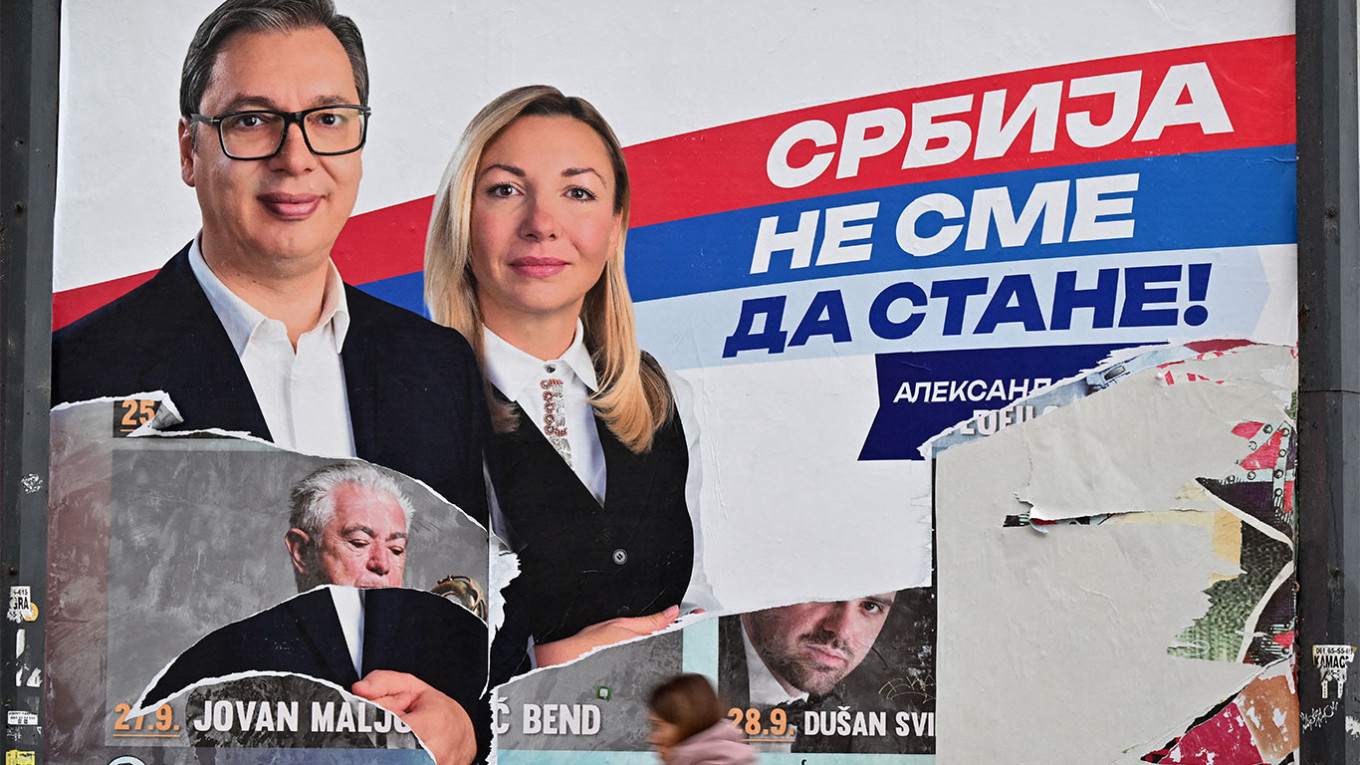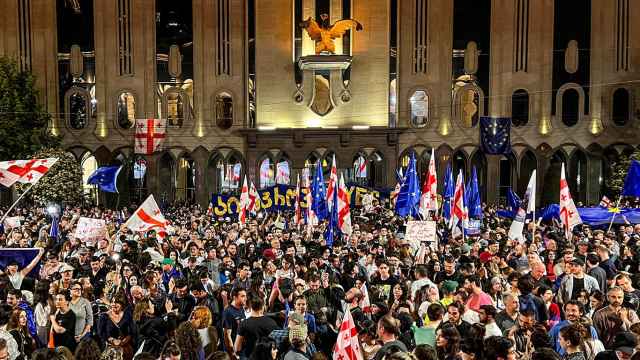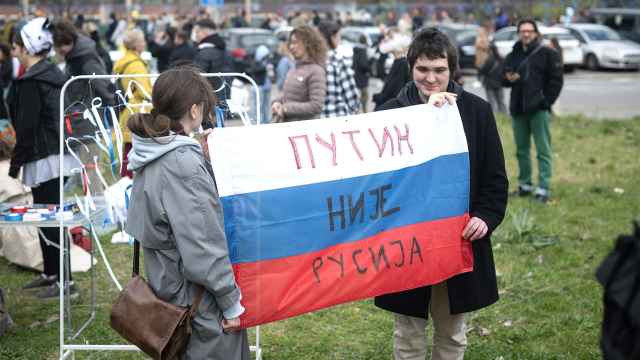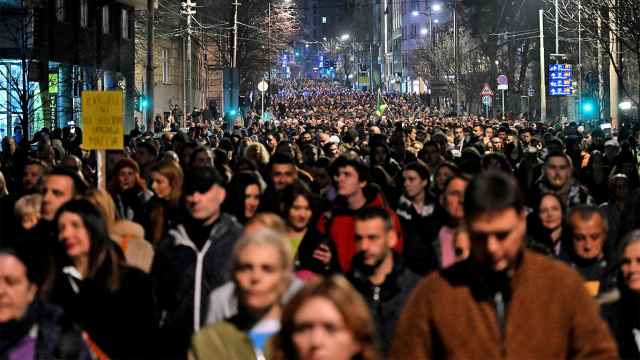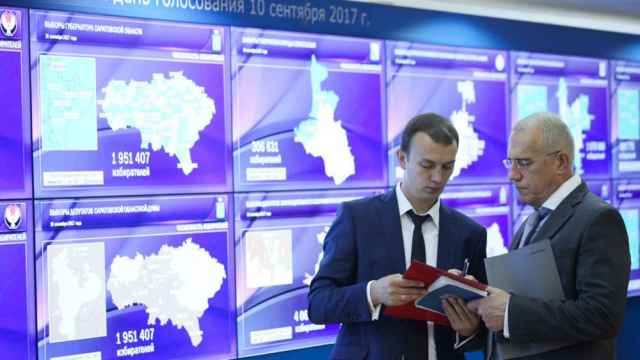BELGRADE, Serbia — Concerns have been raised in Serbia over the presence of a Russian diplomat expelled from the European Union on spying accusations in a delegation set to monitor this Sunday’s parliamentary elections.
Alexander Studenikin, who was expelled from the EU in April 2022 for "illegal and disruptive actions," is one of a group of 30 Russian election observers representing the Organization for Security and Cooperation in Europe (OSCE) for Serbia's elections.
This comes one month after Moldova banned a Russian delegation from observing its elections, citing worries that the Russian presence could undermine the electoral process.
Serbia’s snap elections are expected to be a litmus test for the Balkan nation, which is caught between its aspirations to join the European Union and its close allyship with Russia.
Under President Aleksandar Vucic, the populist ruling party has dominated since 2012 by marginalizing critical voices, but this year a credible, pro-Western opposition has unified to challenge him.
Though Moscow is still invited to send observers as part of the OSCE, concerns over Studenikin’s background were raised by embassies and opposition parties following a report by the U.S.-funded RFE/RL news outlet. The EU has described Studenikin as engaged in activities against the interests and security of the EU and its member states.
“If they're a security threat for EU states, they’re also a security concern for Serbia,” Nathan Albahari, an MP from the Movement for Free Citizens in Serbia opposition party, told The Moscow Times.
“We don't want potential Russian intelligence agents running around. I’m sure there are even those in the Serbian intelligence community who don't want them meddling in Serbia.”
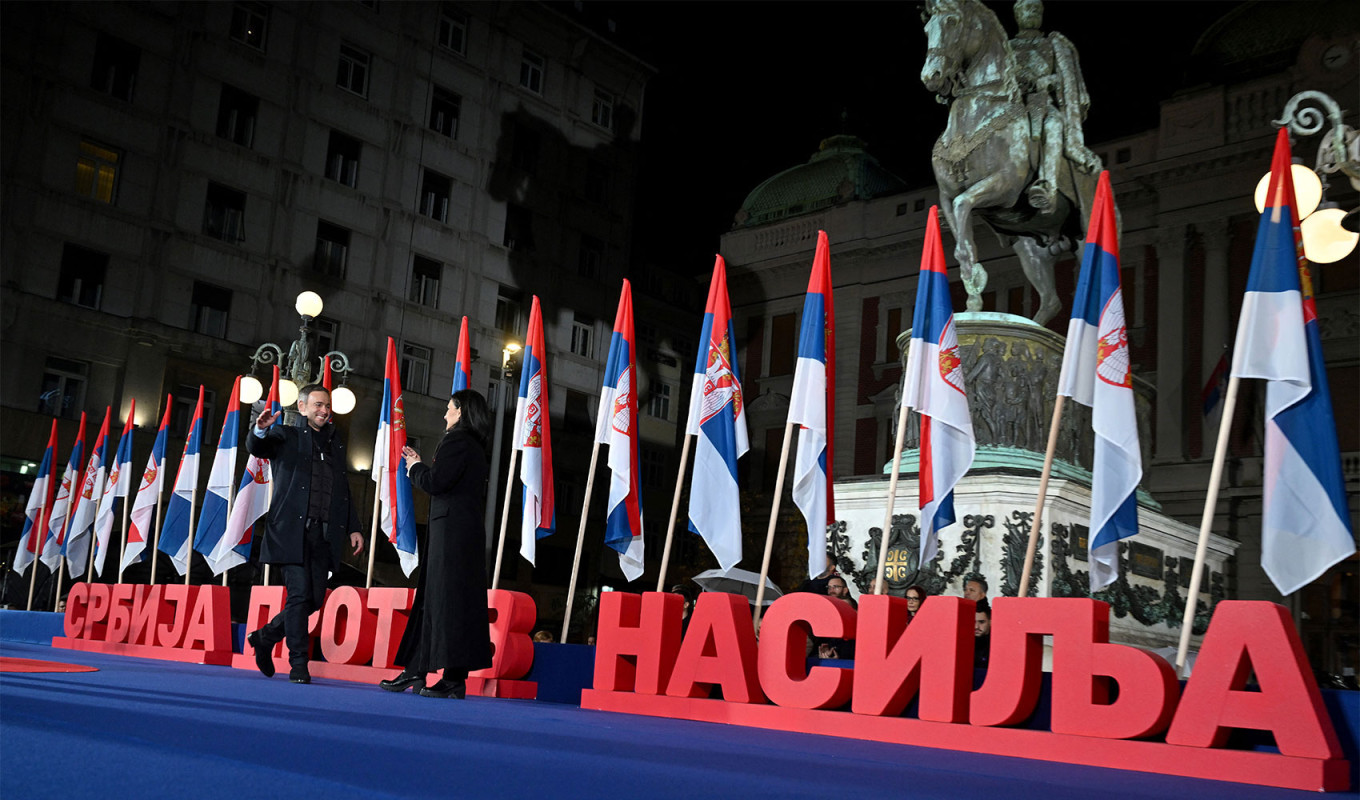
He added: “It would be a concern if these people are purposely trying to take things out of the report or water down criticisms of what's happening on the ground.”
A spokesperson for the OSCE said this was unlikely due to the presence of 254 international observers all working in pairs, and that any “irregular reporting” would be removed from the final statistics that make up the report.
However, Serbia’s elections are already set to transgress the OSCE guidelines for free and fair elections.
Since Vucic called the snap elections in November, opposition members and government critics have reported facing harassment, threats and unverified accusations of being CIA agents on state-run media.
Two government critics were targeted with Pegasus-like spyware, an opposition candidate’s private sex tape was aired in the tabloids, and reports of bribery and vote-buying are rife.
In the countryside, farmers voting for the opposition parties have been beaten up and hospitalized or had their agricultural machinery burned by neighbors whom they recognized as supporters of Vucic’s party.
A Serb living in North Kosovo said he will be bussed across the border on Sunday to vote for the ruling Serbian Progressive Party (SNS), as will many Serbs living in Bosnia and Herzegovina’s Republika Srpska.
“You are simply left with no choice,” the man said, speaking anonymously due to personal safety concerns. “Many people got employed in temporary jobs in the past couple of weeks and were explicitly told: ‘Vucic gave you this job, you know how to return the favor.’ They don’t care how blatant it is. Their attitude is ‘Win at all costs’.”
This is consistent with Vucic’s ruling style, which is described by his critics as autocratic. Both the European Parliament and the European Commission have regularly cited serious deficiencies in Serbian democracy in their reports on Belgrade’s progress toward EU membership. Most complaints concern the rule of law and freedom of the press.
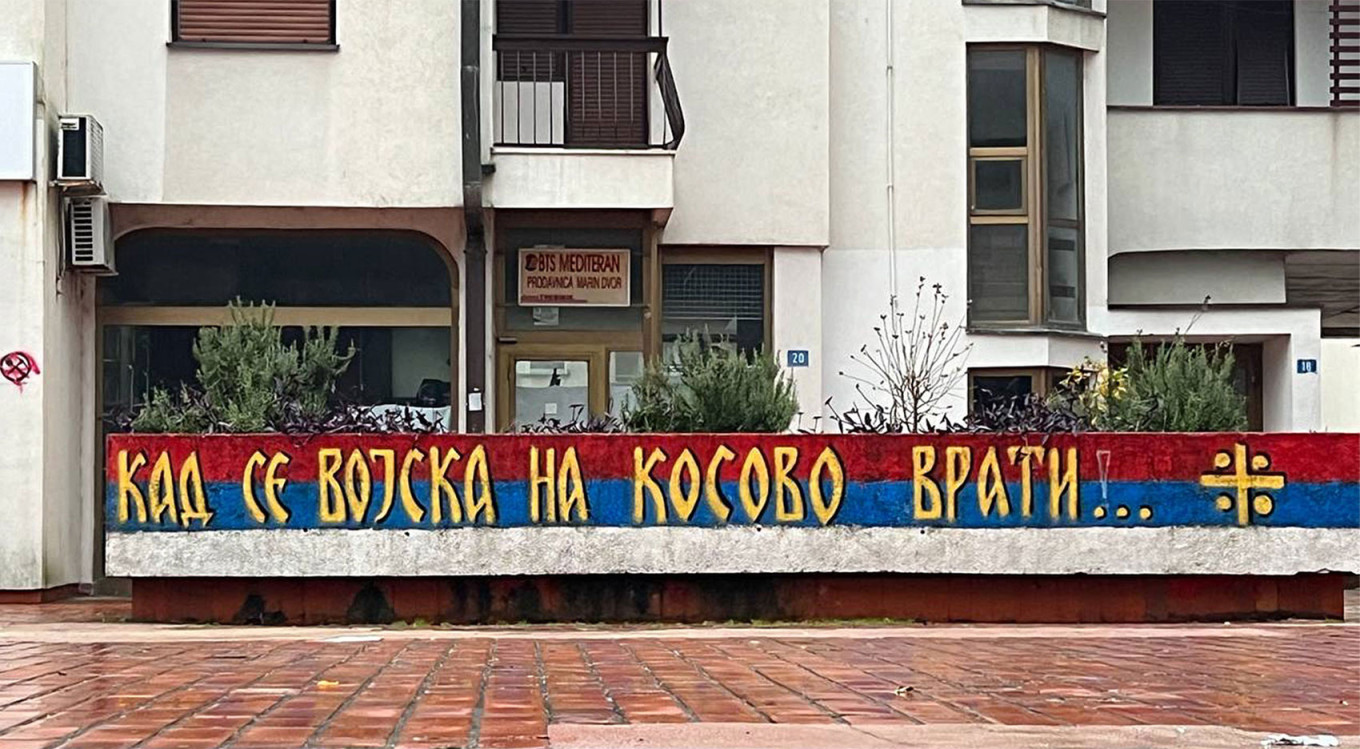
Since the start of the war in Ukraine, Vucic has come under pressure from the EU and the United States for declining to join the West’s sanctions on Russia and openly maintaining friendly ties with Moscow.
Western foreign ministries worry that this cozy relationship will bias the results of the OSCE’s report to be submitted Monday after the polls close.
This falls into a wider pattern of Russia undermining the OSCE’s work by delaying critical decisions including on leadership positions and budgets at its headquarters in Vienna.
Though five EU countries have advocated keeping Russia in the OSCE, one of the few pan-European organizations of which it is still a member, other members are losing patience.
After Russia suspended its payments to the OSCE in April 2023, OSCE U.S. Ambassador Michael Carpenter was quoted as saying: “At this point, it is clear that Russia has no interest in abiding by…the fundamental principles on which we operate.”
As the election host country, only Serbia has the power to deny accreditation to the Russian delegation. The OSCE cannot make that decision.
The ruling SNS party does not appear to be worried about security concerns. Though none of its members were willing to comment for this article, Studenikin has been pictured at SNS party conferences.
Serbian political analysts and figures from the country’s largest opposition coalition, Serbia Against Violence, don’t believe the presence of Russian election monitors will affect the vote this time.
Instead, they ask wider questions about the credibility of the OSCE mission in the Balkans and its lack of impact to date.
“The OSCE reports are a piece of paper that nobody pays attention to,” said Borko Stefanovic from the Freedom and Justice party, part of the liberal-leaning Serbia Against Violence coalition.
“For Vucic, it’s just a box he has to tick, but there’s no change in his autocratic behavior,” Stefanovic said. “The threat of being denied access to the EU path means nothing, he doesn’t care about the EU path. He’s fine to play both sides.”
Analysts monitoring Russian interference in the Balkans at the Belgrade Center for Security Policy (BCSP) said that the Serbian government poses a greater risk to the integrity of the electoral process than Russian electoral observers.
“The OSCE remains dysfunctional and burdened by the divide between Russia and the West. It is not a decisive player in the way international geopolitics shape Serbia’s reality. Individual countries are more important to Serbia,” said Vuk Vuksanovic, a lead analyst at BCSP.
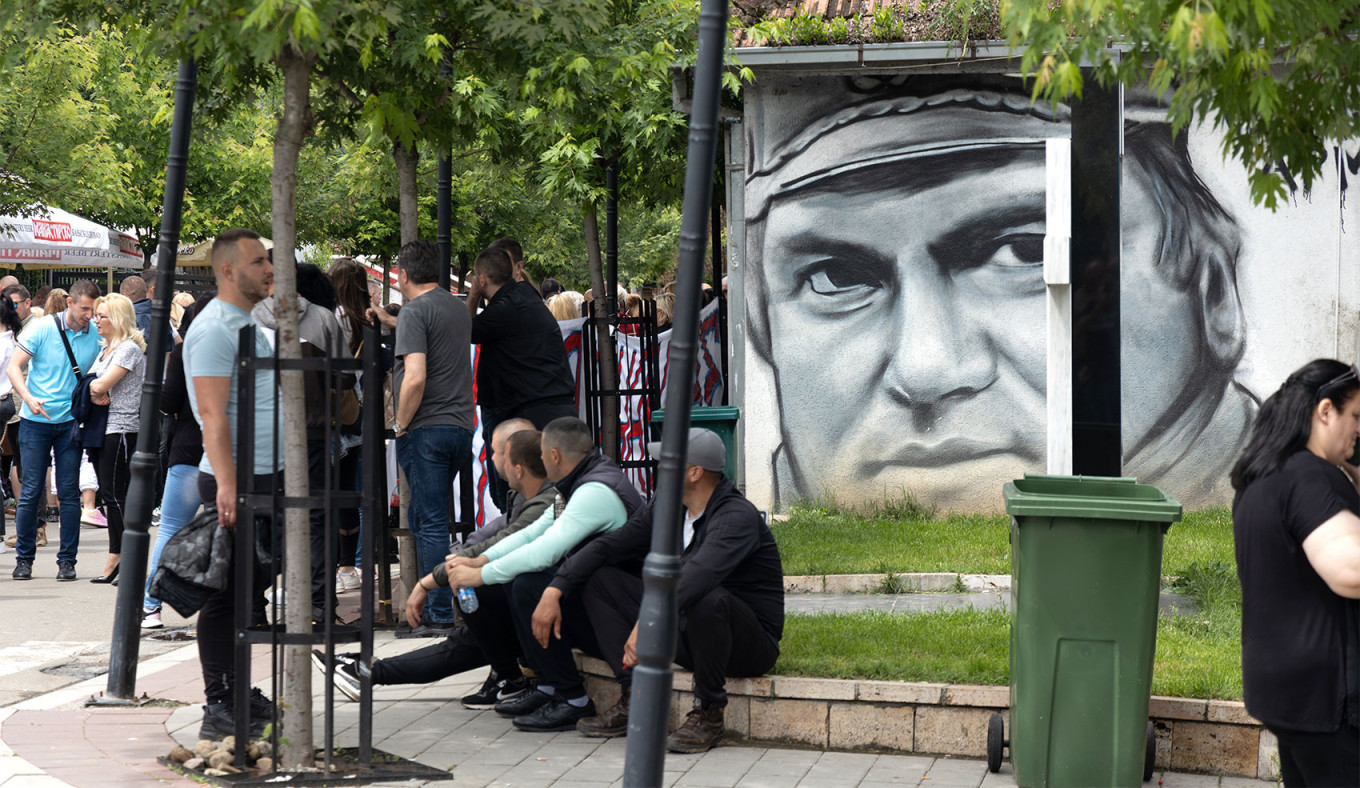
He noted that the physical Russian presence has been increasing here since the start of the war.
“Russians are frequently using Serbia as a consolation place for many of their government representatives, expelled diplomats and intelligence officers,” Vuksanovic said.
Russian state-funded networks RT Balkan and Sputnik opened offices in Serbia in July 2022, spreading propaganda alongside an already pro-Kremlin Serbian state media.
Russian-Serbian business ties have strengthened in recent months, with Russian-made products and foodstuffs flooding shops and Serbian rakia spirits turning up in Moscow.
A joint journalism training program was just announced between Belgrade Singidunum University and Moscow Synergy University.
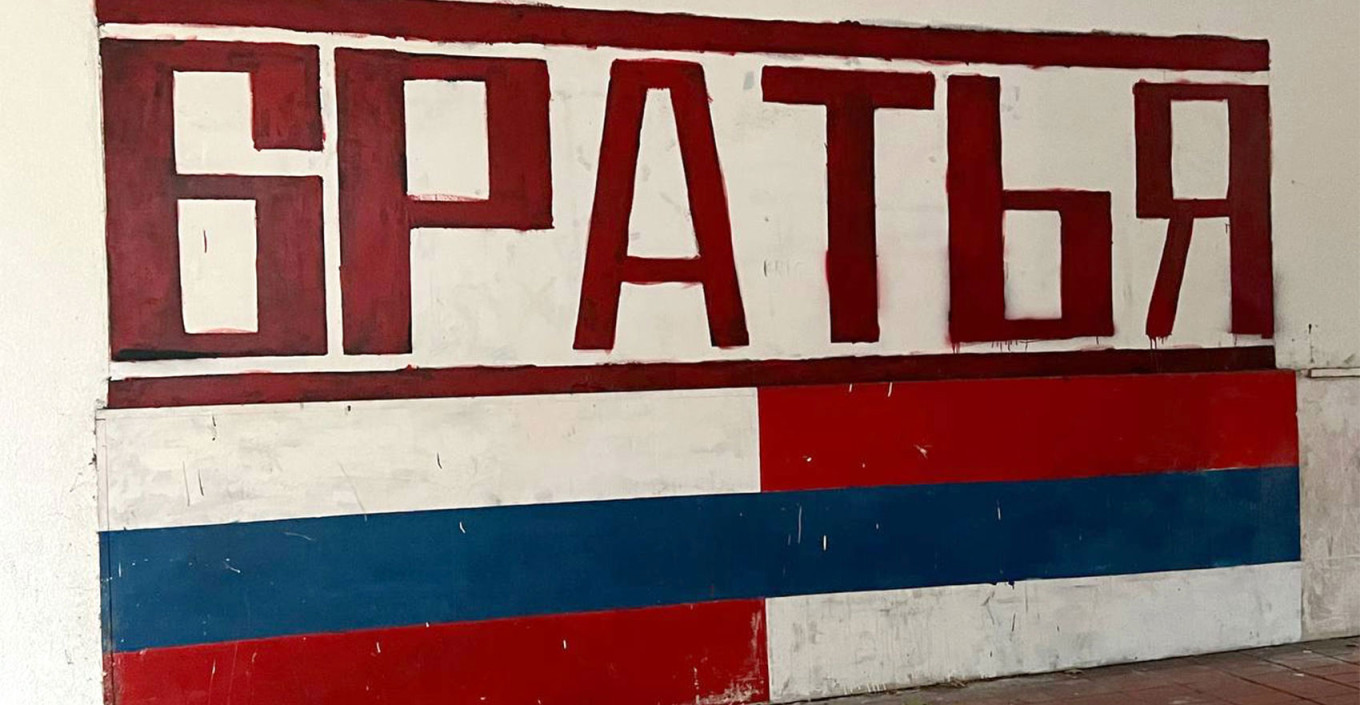
Serbian politicians, including former Security Intelligence Agency head Aleksandar Vulin, regularly visit Moscow. Misha Vacic, a candidate for this year’s Belgrade mayoral election, was recently spotted in Russian-occupied Donetsk, eastern Ukraine.
Many right-wing parties in Serbia openly express pro-Putin views, and politicians such as Dusan Bajatovic sport pro-Russian “Z” T-shirts while campaigning.
Last month, Moldova, another country hoping to join the EU, was also offered Russian observers as part of the OSCE mission for its Nov. 5 elections. Moldovan election authorities refused to grant them accreditation, citing security concerns.
Ivana Stradner, a research fellow at the U.S.-based Foundation for Defense of Democracies research institute, said Serbia would be wise to follow this example.
“I can’t emphasize enough: Russia doesn’t need tanks and jets to destabilize the Balkan region. They use deception via intelligence to disrupt their adversaries,” Stradner said. “Deceptive games are part of Moscow’s game.”
A Message from The Moscow Times:
Dear readers,
We are facing unprecedented challenges. Russia's Prosecutor General's Office has designated The Moscow Times as an "undesirable" organization, criminalizing our work and putting our staff at risk of prosecution. This follows our earlier unjust labeling as a "foreign agent."
These actions are direct attempts to silence independent journalism in Russia. The authorities claim our work "discredits the decisions of the Russian leadership." We see things differently: we strive to provide accurate, unbiased reporting on Russia.
We, the journalists of The Moscow Times, refuse to be silenced. But to continue our work, we need your help.
Your support, no matter how small, makes a world of difference. If you can, please support us monthly starting from just $2. It's quick to set up, and every contribution makes a significant impact.
By supporting The Moscow Times, you're defending open, independent journalism in the face of repression. Thank you for standing with us.
Remind me later.


